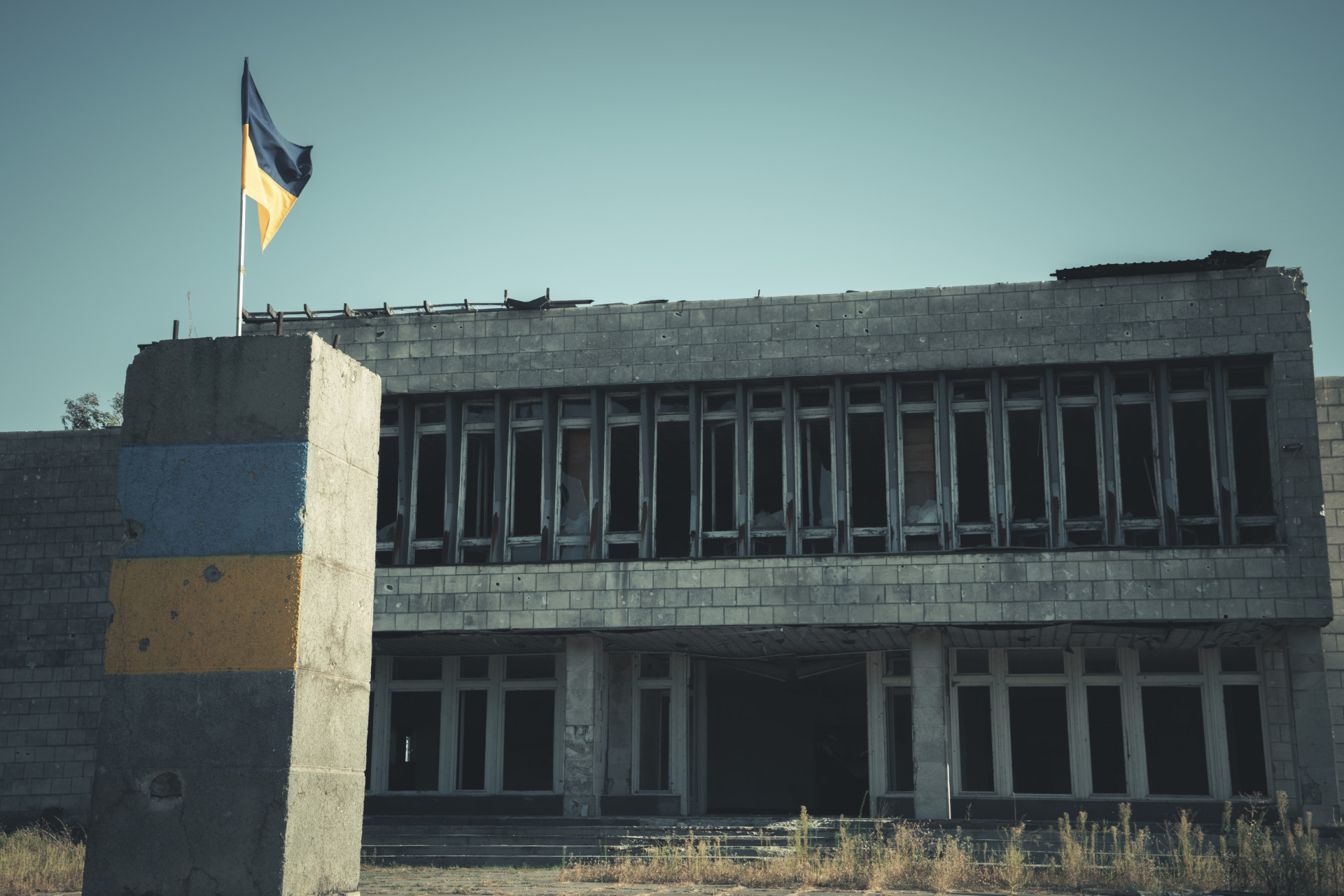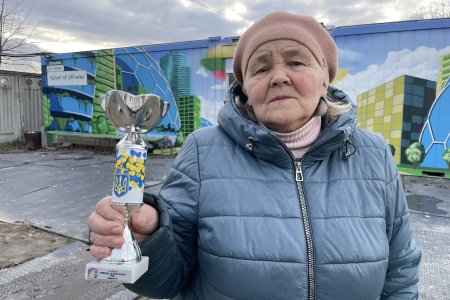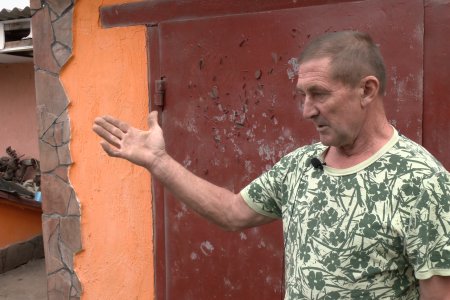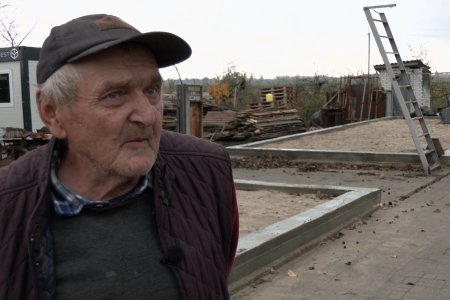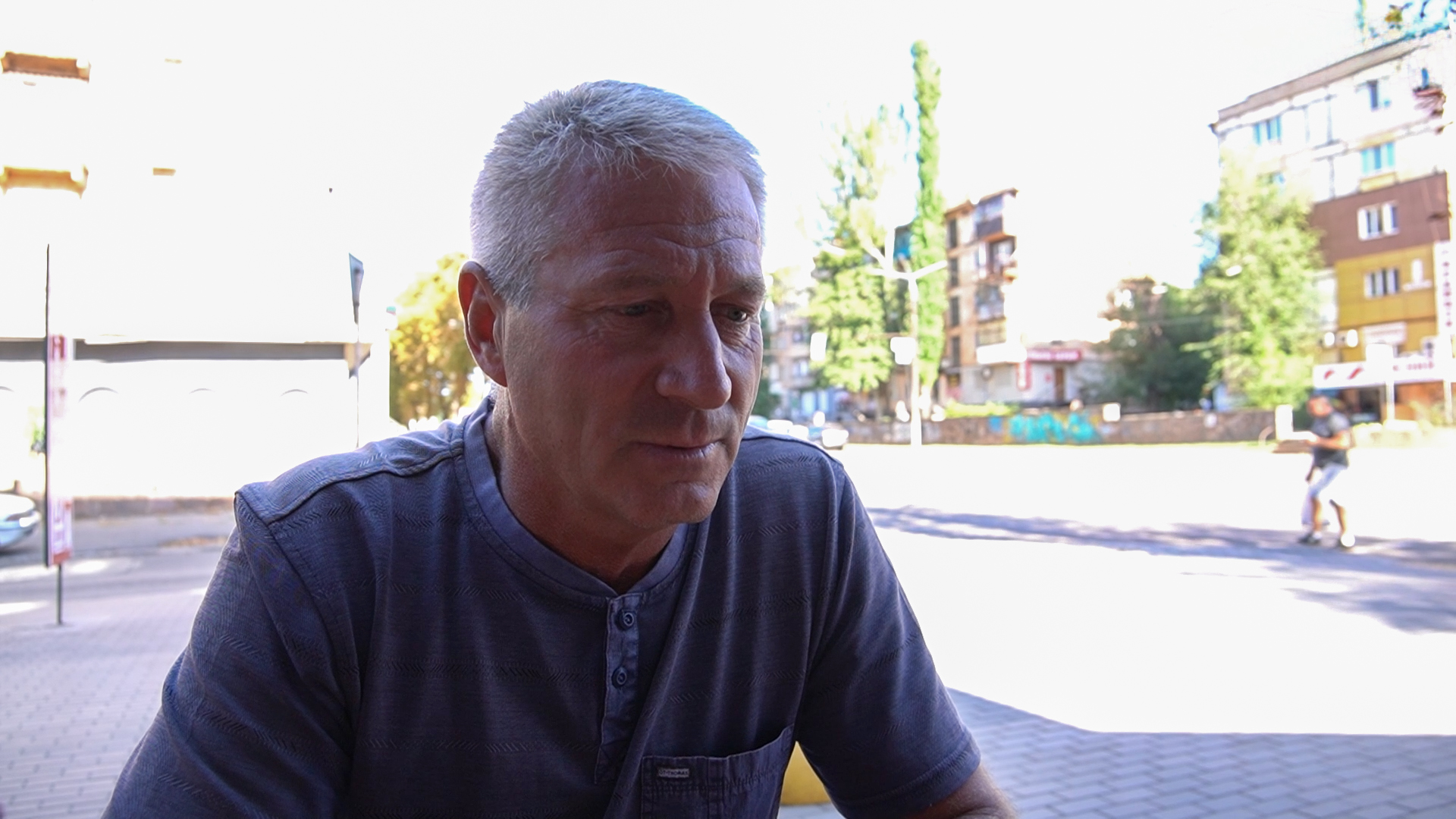
Serhii Kunets first met with the occupiers after the robbery of the central store in the village. The Russian military stole goods twice. The first time, according to the headman, they even left a note with an apology and promised to return everything that was stolen “after the war.” The second case was much less humane — the occupiers broke into the store, robbed it, and left a mess behind. To stop such visits, Serhii Kunets proposed a meeting with the commander of the Russian military. At first, the commander denied the very possibility of robbery. However, in the first days of the occupation, surveillance cameras were still working in the store, clearly recording all the night “guests” actions. After this, the Russians returned part of the loot.
In the first weeks of the occupation, the headman tried to organize humanitarian deliveries not only to Osokorivka but also to surrounding settlements. Subsequently, Serhii learned that the head of the village of Khreschenivka had disappeared.
“Our bosses didn’t care about anything,” I asked where Viktor Kopytok, the headman of Khreschenivka, was. “But we don’t know!” — “Who brings anything there? Bread, water?” — “But we don’t know!” — recounted Serhii. He admitted that the region had administrative chaos in the first weeks of the occupation.
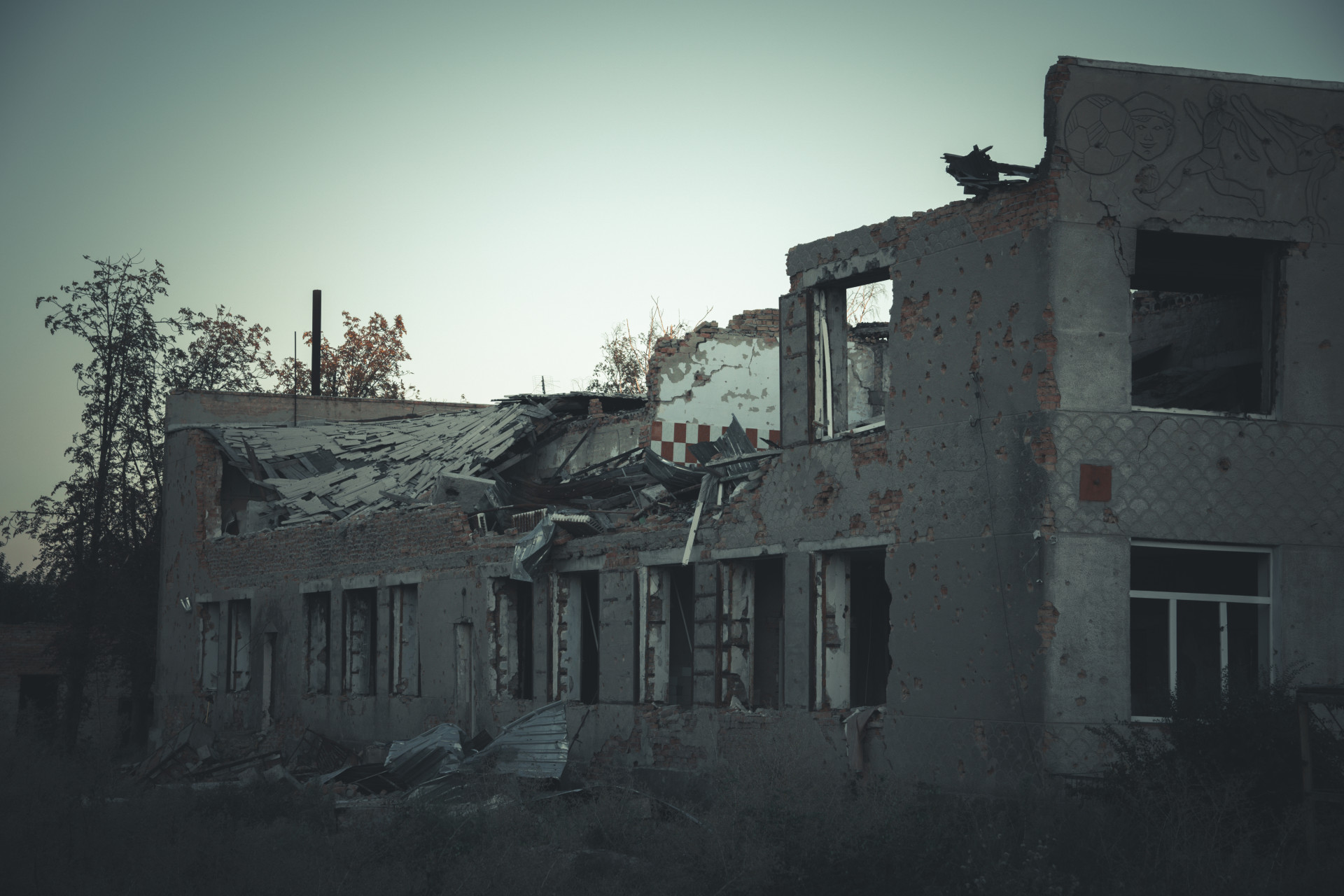
Having learned about the disappearance of the headman in the neighborhood, Serhei Kunets tried to resume food supplies to Khreschenivka through his efforts. But he ran out of time.
“I started negotiating with the Red Cross to collect cereals and some canned goods. I arrived at the bakery and said: ’How much bread did Kopytok take?’ — ’So much.’ — ‘Okay, bake it for me, and I’ll take it instead.’ Well, I didn’t have time. They seized me.”
Recalling the circumstances of his detention, Serhii admits he immediately realized that something was being concocted against him. Previously, one of the occupiers called him on the phone, demanding a meeting, supposedly to discuss humanitarian aid to the population. It was impossible to refuse.
“Well, we’ve been everywhere. Where we should be and where we shouldn’t. Our cars were seen. Well, they paid attention to us, so to speak. After the call, I went to the meeting place, where they told me to keep driving. There was already a ‘Tiger’ standing there, a machine gun aimed at me, and people with machine guns around. They took the phone, put a balaclava and handcuffs on me. They took me to an unknown place,” — recalls the headman.
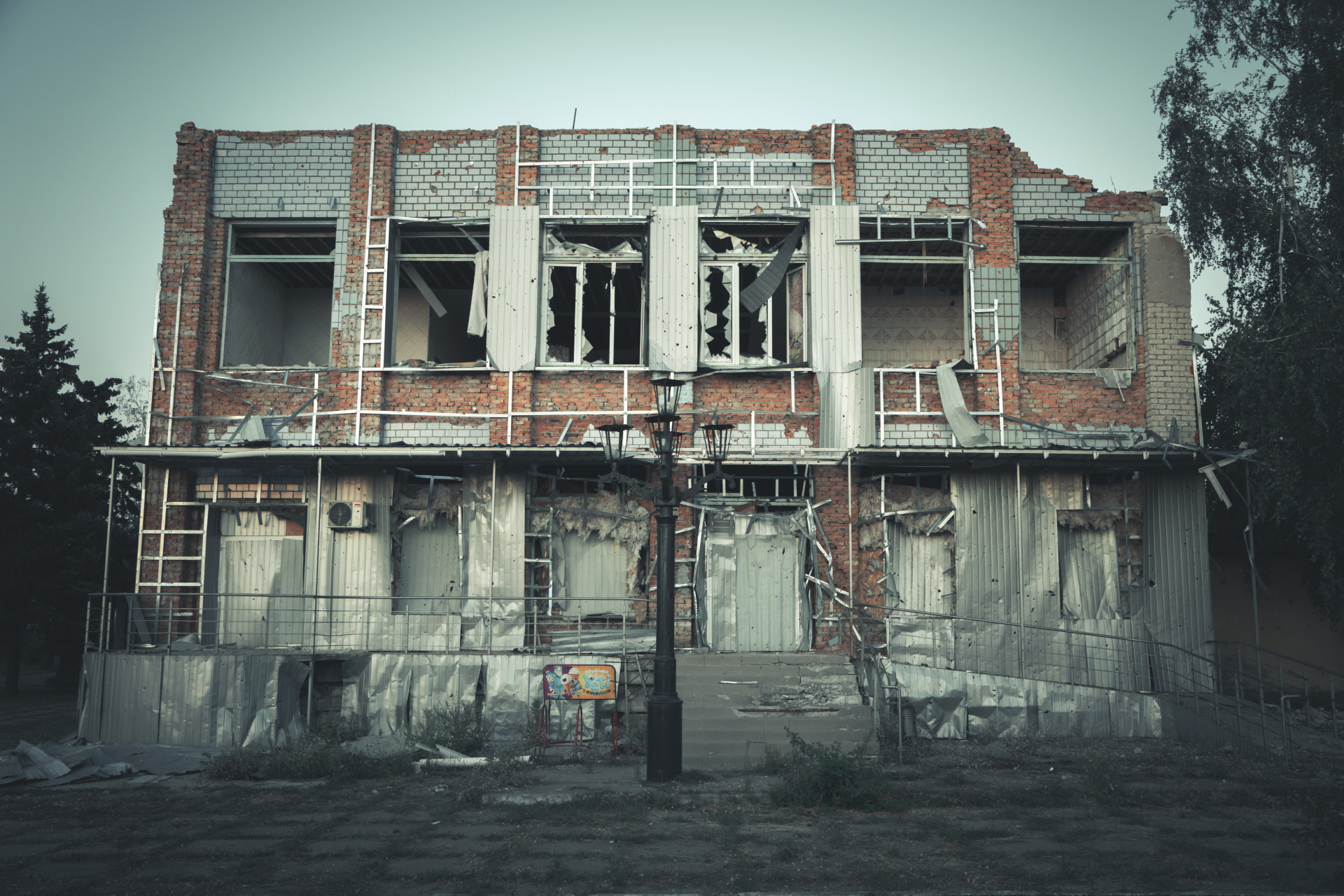
Serhii Kunets spent the next three weeks “in the basement.” It became known the headman of Khreschenivka was also kidnapped by the occupiers. Serhii recalls the torture and admits that he feels its consequences today. They “played” Russian roulette with the man, threatened him with death, and tortured him with electric shock and heated metal. Viktor Kopytok also experienced the same torture.
While they were in captivity, the Ukrainian Armed Forces began local offensive actions. Osokorivka was liberated at the end of April, but the front line ran through the village itself. The settlement was located in the “gray zone”, which separated the positions of the Ukrainian military and the occupiers.
After spending three weeks “in the basement,” Serhii Kunets was released. He was asked to sign various unknown documents, which he calls “pieces of paper without stamps, dates, without anything.” According to him, he never signed part of it, which generally did not bother the occupiers much. For them, it was probably a bureaucratic and formal task that no one followed up on.
When the Russians were forced to leave Osokorivka, the occupiers began to take revenge on the local population. Residents describe how, during the retreat, the Russians randomly fired small arms and grenade launchers at civilian houses. Journalist Serhii Okuniev interviewed several residents at once, who confirmed this information and independently described almost identical cases that demonstrated crimes by Russians.
Today, Osokorivka is damaged by almost 80%. The central part of the once-rich village has been devasted. The school, local community center, kindergarten, shops, and many private houses were utterly destroyed.
Serhii Kunets remained headman, and for more than a year after the liberation of the entire right-bank Kherson Region, he had been restoring life in Osokorivka.
